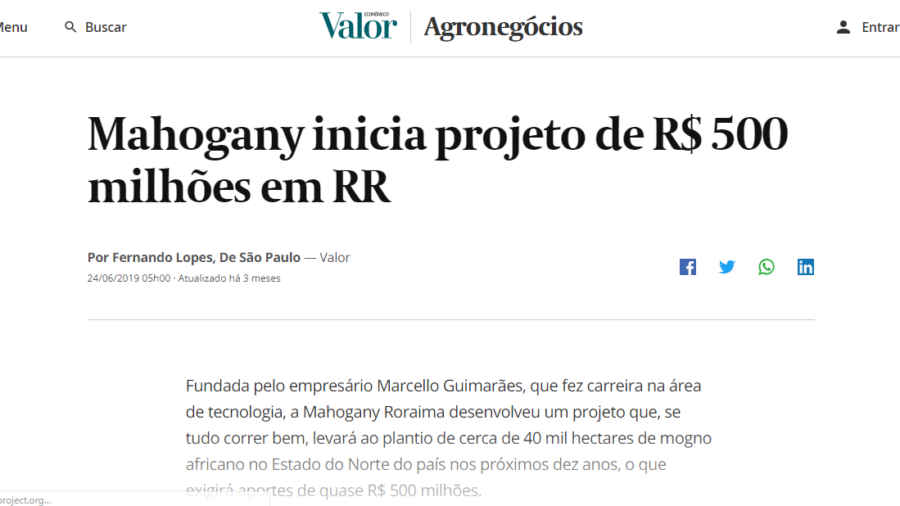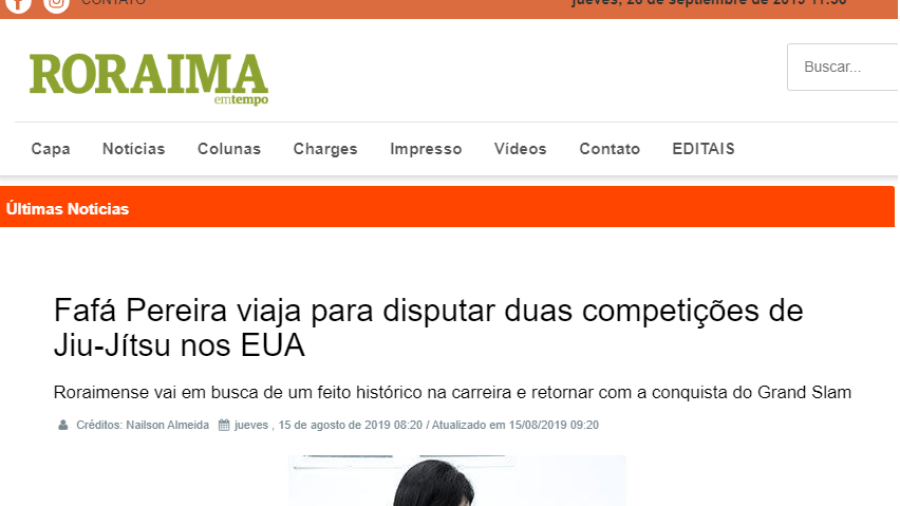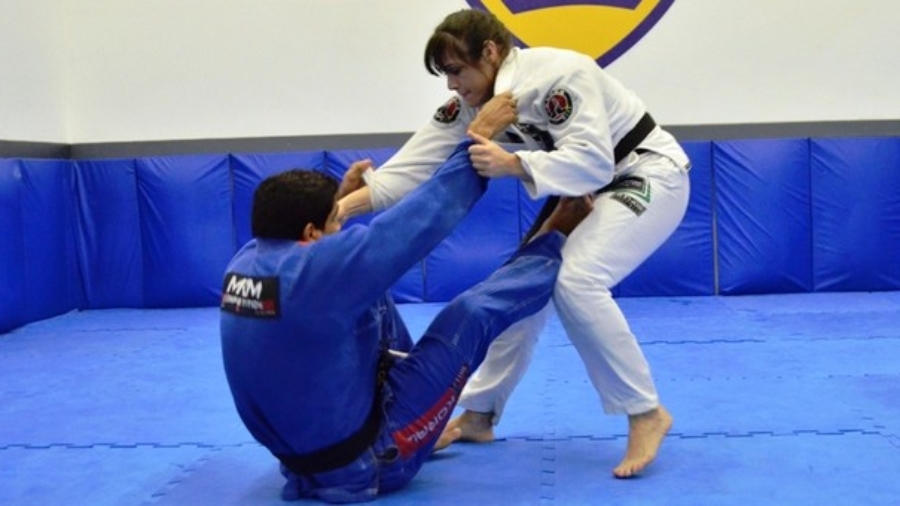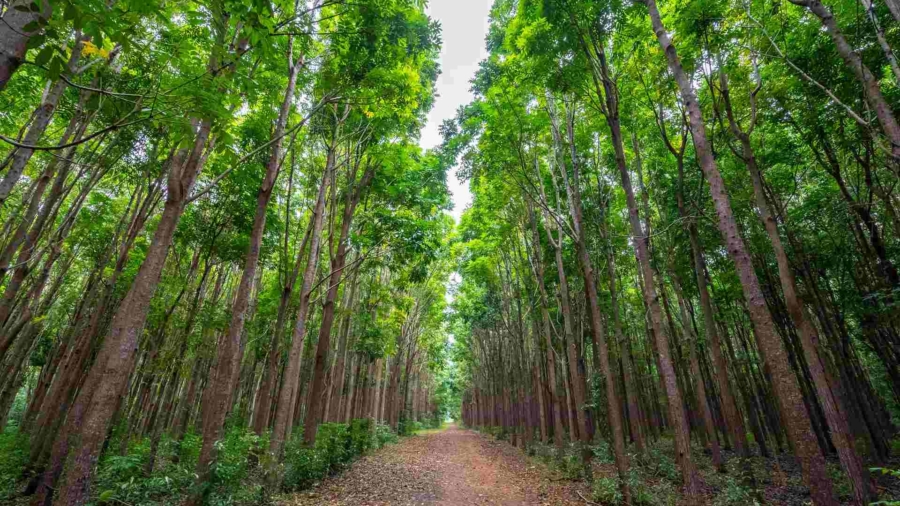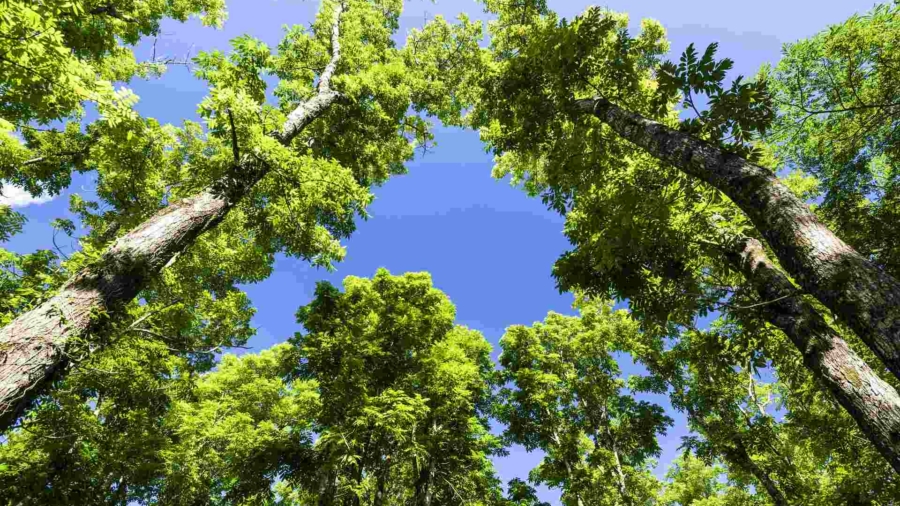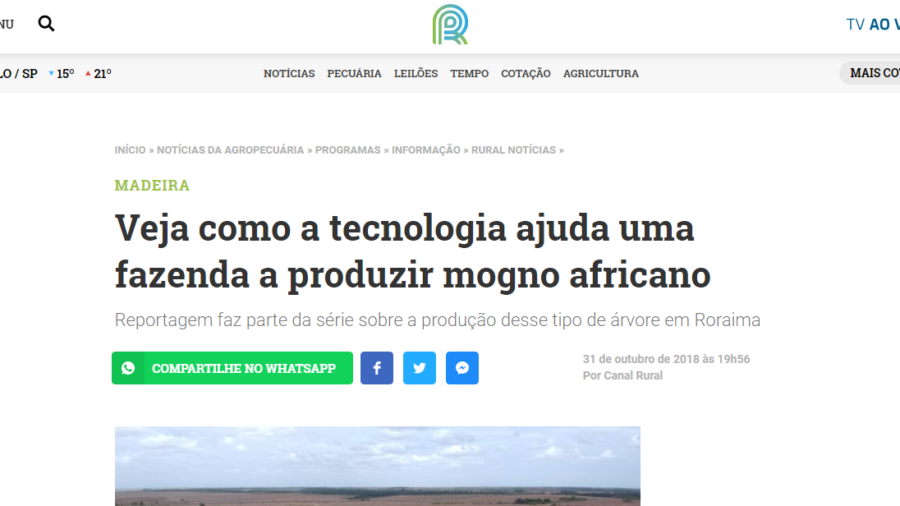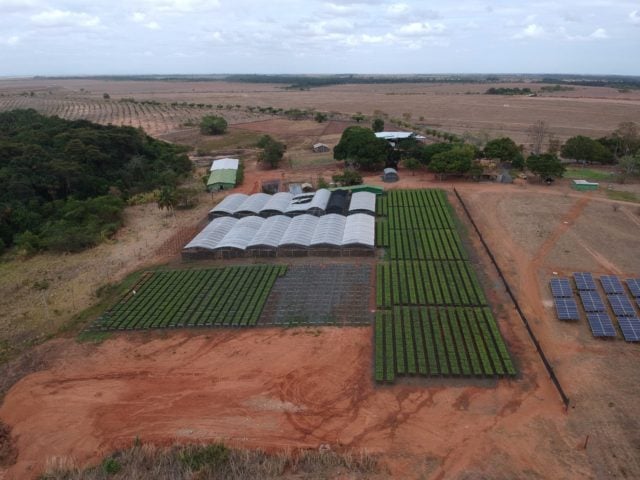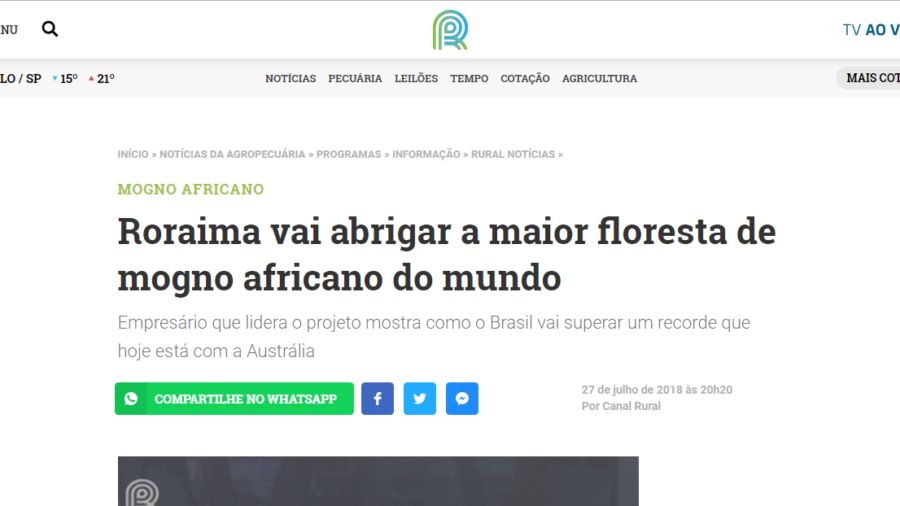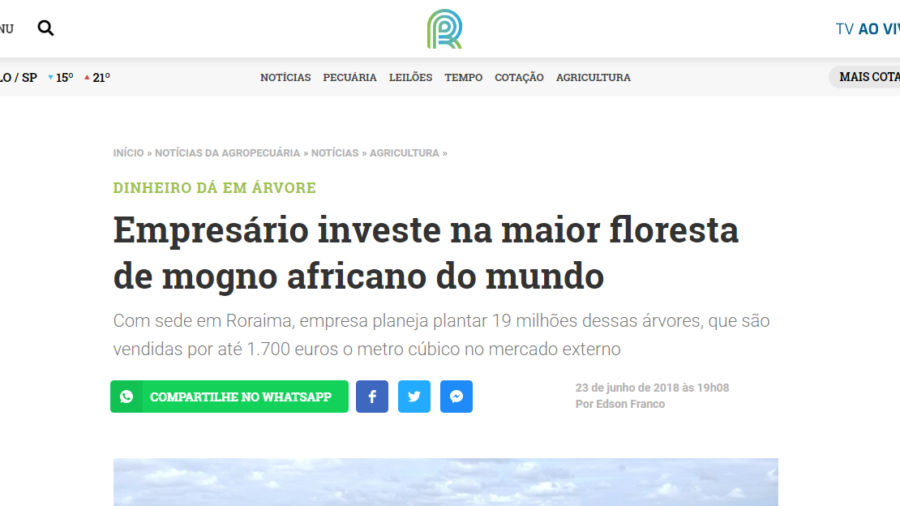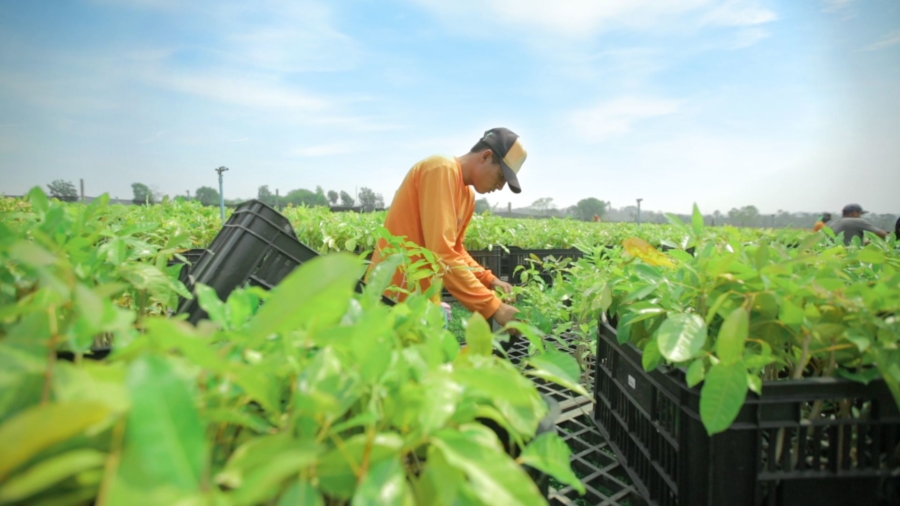Brazil will have the largest African mahogany forest in the world. The project, which is being implemented by Mahogany Roraima, provides for a planted area of 24,000 hectares in 10 years in the state of Roraima. It is the equivalent of 19 million trees. Currently, the largest African mahogany forest is in Australia and has 15,000 hectares.
The president of Mahogany Roraima, Marcello Guimarães, explains that the state was chosen for having the lowest land price per hectare in Brazil and the best soil and climate condition for growing African mahogany. The state also has a lot of unproductive land, which motivated Mahogany Roraima to close agricultural partnerships with the owners, who will get 20% of the value produced.
Roraima is also in a strategic location for the outflow of production, which will be 100% destined to the international market. The state is located 600 km from the port of Georgetown, where the wood will be drained. Georgetown, meanwhile, is just a day’s sail from the Panama Canal.
R $ 487 million will be invested in 21 years, with purchase of land and planting (10 years of planting and 11 years of maintenance, including cutting). The estimate is that 5.9 million cubic meters could be cut between the next 36 and 96 years, depending on the quantity marketed per year.
Brazil sold an annual average of 175 thousand m³ of Brazilian mahogany up to the prohibition of its extraction to avoid extinction of the species.
Marcello Guimarães shows the accelerated growth of African mahogany
The company forecasts a return of R $ 11 billion reais. In addition to the use of state-of-the-art technologies, Mahogany Roraima has established a scientific technical partnership with three teams of researchers. One of them will study all the soils of the forests (fields), with the aim of making them self-sufficient in three years.
Another team will do research on the best handling conditions in the nursery and on the plots and will conduct the cloning research. The third team will be responsible for research on the development of roots in the field and in other African mahogany plantations in the state of Roraima.
The company has also worked with Germany’s Astech to create an automated irrigation system (the system identifies mahogany by green color and activates the solenoid that opens the water release), the construction of a machine for starter fertilization and automatic coverage (identifying where the tree is), and finally a 100% automatic planting system.
Exile in Cuba
Born in Rio de Janeiro, the president of Mahogany Roraima, Marcello Guimarães, moved to Cuba at age 3. And the reason for his change became a headline in Brazilian newspapers. On January 4, 1970, he and his brother Eduardo, a year younger, embarked with their mother on a flight from Montevideo to Rio de Janeiro. Marília Guimarães, the boys’ mother, was the left-wing activist, codenamed Miriam. At that moment she participated in the kidnapping of the aircraft, which had its destination diverted to Havana, capital of Cuba.
“We spent ten years there. My mother worked in Cuba with Nueva Trova Cubana and studied medicine. We studied in conventional schools and, from the 7th grade onwards, at a school in the country. Part of it was class, and the other half was work in the countryside, to integrate and teach what rural life was like. Hence comes my love for the land, “says the businessman. The family only returned to Brazil in 1980, benefited by Amnesty.
Back in the country, Marcello started to develop his knowledge of computer science and technology. To this added his entrepreneurial side, with which he set up the company responsible for Brazil’s first computerized election. Another notable initiative was the development of Visual Kit 5, a toolkit that allows the development of programs even for those who are unfamiliar with the languages for the formulation of software.
Mahogany plantation in Mahogany Roraima area
After a season living in Miami, Marcello settled in Boa Vista, capital of Roraima, five years ago. There, he decided to rescue his passion for the country’s things. He started by raising pigs. Then it passed to dairy cows. The problem is that in periods of drought, any spark generates forest fires in Roraima. “In 2013 and 2014, the farm caught fire. I lost animals. I had to change, “he says.
It was looking for land he heard a broker speak of African mahogany, wood by which Europeans even pay 1,700 euros (about $ 6,000) per cubic meter. “I spoke with a producer from Minas Gerais. I asked if Roraima lent itself to this culture. He said it’s the best place in Brazil. We are on the same latitude as Africa’s most auspicious climate. “
The similar rainfall regime causes the tree to grow rapidly during wet periods and gain resistance and its reddish tint during the dry season. And it is these characteristics that make wood so valuable.
With cheap land and a lot of research investment, Marcello has developed a planting method that reduces losses to less than 1%, when the normal is around 10%. In addition, it has created a system that allows cultivating large areas in a short space of time.
Their advances already arouse the curiosity of foreign investors. Mainly interested in doing forest-land integration. “A group of Israelis will plant cacao in Brazil in the midst of our Mognos. There is also a Chinese who is taking the idea to implant in their country, “says Marcello.
Bugs begin to return to reforested areas
Planting mahogany is a risky and long-term investment. It takes 15 years on average until the tree reaches the ideal point. To keep the business standing, in addition to the transfer of technology, Marcello has forestry replenishment credits, the help of investors and landowners with idle lands, who manage to cede the area in exchange for part of the income generated by the commercialization of timber.
In the entrepreneur’s view, market is no problem. “There are many buyers from rich nations. The industries of furniture, decoration, automotive, aeronautics and naval. And there is also the pharmaceutical industry, because the bark of mahogany is indicated for the fight against various diseases. “
While his business is gaining ground and advancing through the lands of Roraima, the entrepreneur rushes to get all the environmental licenses for the project. “The first one took a year and a half. Now I’m looking for the definitive. “This may take a little longer, as it involves the work of environmentalists, geographers and even archaeologists to do the socio-economic study that will lift the impact of the project on the fauna and flora of the state.
Access the news on the website that published it (in Portuguese): https://canalrural.uol.com.br/noticias/agricultura/empresario-investe-na-maior-floresta-de-mogno-africano-do-mundo/

